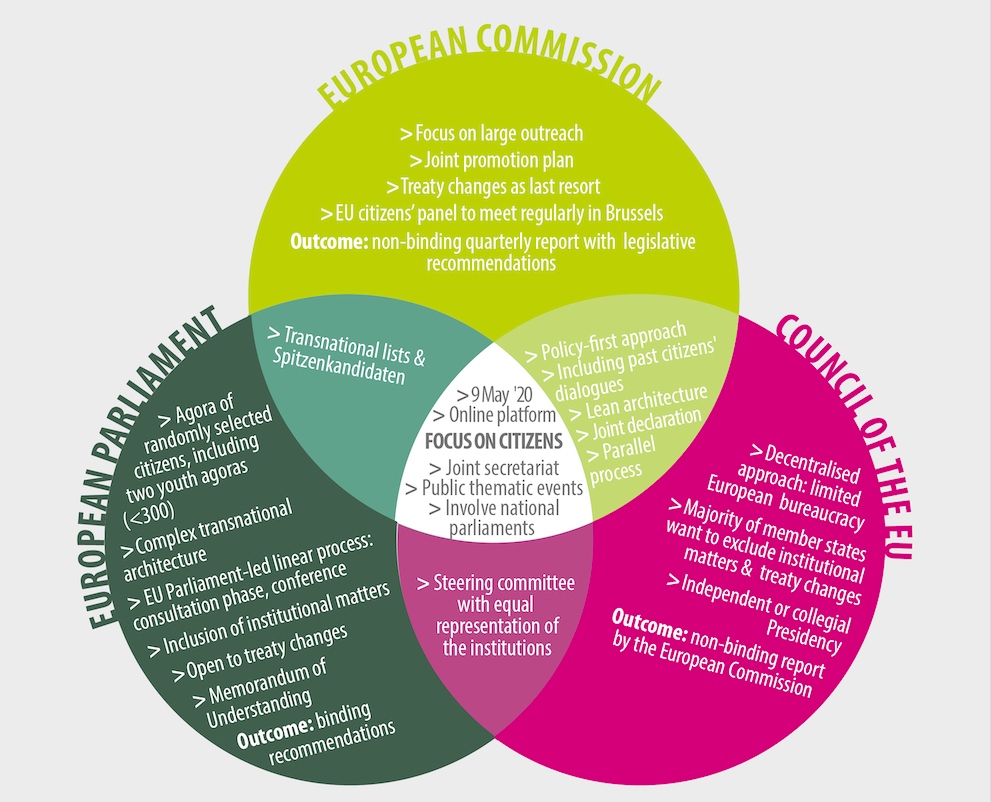 |
Council of the European Union |
European Parliament |
European Commission |
|
|
|
|
OBJECTIVE AND SCOPE
|
OBJECTIVE AND SCOPE
|
OBJECTIVE AND SCOPE
|
|
ORGANISATION AND GOVERNANCE OF THE CONFERENCE
|
ORGANISATION AND GOVERNANCE OF THE CONFERENCE
|
ORGANISATION AND GOVERNANCE OF THE CONFERENCE
|
*updated 19-02-20 as institutional negotiations were not yet finalised
